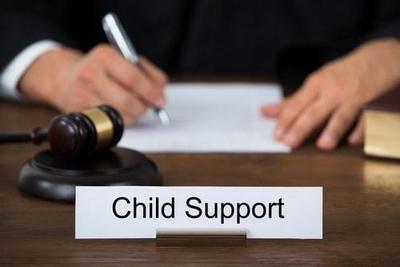Wage Garnishment and Child Support
 If a child support order is entered in a divorce case, it must be obeyed unless a party is able to demonstrate by clear and convincing evidence that he or she requires modification to the order. The paying party cannot simply decide to stop paying support, and if this does indeed happen, there are methods you may use to ensure you and your children receive what you are owed. Garnishing wages is perhaps the most common in the state of Illinois, and it is fairly easy to start the process.
If a child support order is entered in a divorce case, it must be obeyed unless a party is able to demonstrate by clear and convincing evidence that he or she requires modification to the order. The paying party cannot simply decide to stop paying support, and if this does indeed happen, there are methods you may use to ensure you and your children receive what you are owed. Garnishing wages is perhaps the most common in the state of Illinois, and it is fairly easy to start the process.
Misconceptions About Garnishments for Child Support
It is important to understand what actions may be legally taken regarding owed child support and garnishments, as child support is in somewhat of a special category when it comes to required payments. Many believe, for example, that a court order is necessary before you can garnish wages for child support. This is not actually the case in Illinois. Child support is one of the few obligations for which a court order is not required before garnishment; others include are unpaid taxes and student loans that are in default.
Another common misconception is that if you have a garnishment order against you for another unpaid obligation, such as a credit card bill, then your wages cannot be further garnered. This is not the case unless that previous order is for 15 percent or more of your total wages. Until that point, any number of garnishment orders can be obtained against you.
The Non-Support Punishment Act
In some cases, nonpayment of support can even result in civil or criminal penalties. Illinois has adopted the Non-Support Punishment Act, which stipulates that failure to pay support can be a class A misdemeanor, or a class 4 felony if the offense is repeated. Fines usually come along with such sentences, and can range as high as $25,000, for a support obligation owed for years.
One important thing to remember is that if you have a support order against you, an ability to pay support is presumed, unless you are able to rebut the presumption with clear and convincing evidence. In other words, the fact that you have a support order against you that you have not attempted to change before your nonpayment will be presumed to indicate that you can pay support, but simply choose not to. Regardless, there will be consequences if you continue to fail to pay, which could eventually result in jail time.
Ask a Child Support Attorney
If you have an order entitling you to child support, you and your children should be receiving it. Contact an experienced Naperville child support attorney to discuss your case today. Call Pesce Law Group, P.C. at 630-352-2240, and explore your options for collecting the support you are owed. Schedule your free consultation today.
Source:
https://newhire.hfs.illinois.gov/NewHireWeb/IncomeWithholding.jsp











 630-352-2240
630-352-2240



